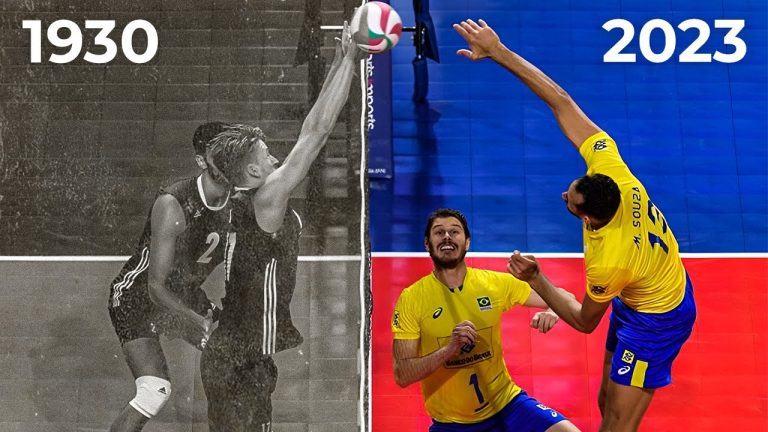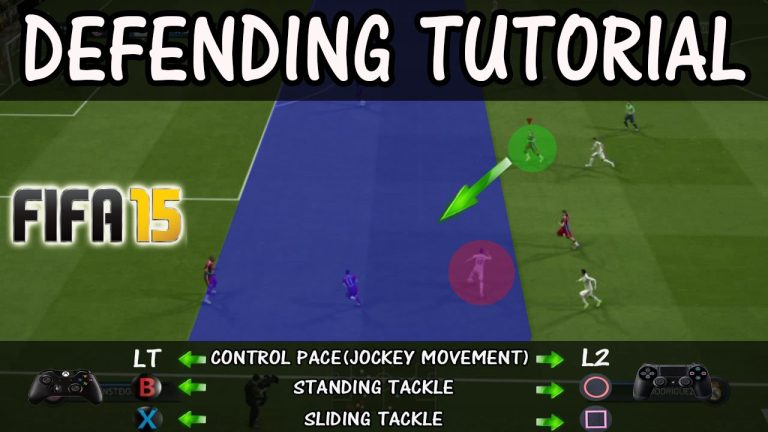
In the fast-paced and dynamic world of volleyball, effective team communication is the key to success. And at the heart of this communication lies the pivotal role of the captain. Serving as the linchpin between players, coaches, and referees, the captain not only directs the flow of the game but also ensures the seamless coordination and synchronization of the entire team. This article delves into the crucial responsibilities of a volleyball captain, exploring their ability to motivate, strategize, and inspire their teammates to achieve greatness on the court. Join us as we unravel the behind-the-scenes role of the captain and discover how their leadership skills contribute to the triumph of the team.
Advantages
- Facilitates Effective Communication: The captain plays a crucial role in team communication in volleyball by ensuring that all players are on the same page. They act as a central point of contact, relaying important information such as game strategies, tactics, and any changes in the game plan. This helps to eliminate confusion and ensures that the team is working together towards a common goal.
- Builds Team Chemistry: The captain in volleyball acts as a leader and mentor to their teammates. They help to foster a positive team environment by encouraging open communication, resolving conflicts, and promoting trust among team members. This strong team chemistry not only enhances communication but also improves overall team performance.
- Provides Motivation and Support: The captain plays a vital role in motivating and supporting their teammates during matches. They act as a source of inspiration, boosting morale and encouraging players to give their best effort. Additionally, they provide support by offering constructive feedback, helping players improve their skills, and providing guidance during challenging situations. This support system created by the captain helps to enhance team communication and ultimately leads to better team cohesion and success on the court.
Disadvantages
- Over-reliance on the captain: One disadvantage of having a captain in team communication in volleyball is that it can lead to over-reliance on the captain’s decision-making abilities. Players may become dependent on the captain to make all the important decisions, which can hinder their own development and decision-making skills. This can result in a lack of autonomy and creativity among team members, as they may feel hesitant to take initiative or contribute their ideas.
- Communication breakdown: Another disadvantage of the role of the captain in team communication is the potential for communication breakdown. While the captain is responsible for conveying important information and strategies to the team, there is a risk that the message may not be effectively communicated or understood by all members. Miscommunication can lead to confusion, misunderstandings, and ultimately, a breakdown in team coordination and performance. Additionally, if the captain is unable to effectively communicate feedback or address conflicts within the team, it can create tension and negatively impact team dynamics.
What does the captain do in volleyball?
The role of the captain in volleyball is crucial as they serve as the vital link between the players and the coaches. As the liaison, the captain must possess excellent communication skills to effectively convey messages and concerns from both sides. They are responsible for listening to all perspectives, allowing them to understand the various viewpoints involved. Moreover, the captain must also possess the courage to challenge and address any conflicts that arise, whether it be among teammates or coaches. This requires the ability to navigate difficult issues and hold individuals accountable when necessary. Ultimately, the captain plays a pivotal role in maintaining a harmonious and cooperative team dynamic.
In volleyball, the captain serves as the bridge that connects teammates and coaches, making their role indispensable. Effective communication is key as the captain must be able to relay messages and issues between both parties. This requires actively listening to all sides, allowing them to gain a comprehensive understanding of the situation at hand. Additionally, the captain must possess the assertiveness to challenge and address any conflicts that arise. This includes holding individuals accountable when necessary, ensuring a sense of responsibility within the team. By fulfilling these duties, the captain plays a vital role in fostering a cohesive and collaborative environment, essential for success on the volleyball court.
What does the team captain do?
The role of the team captain is crucial in achieving victory. Captains are not only responsible for their own performance, but they are also expected to lead the entire team to success. They are the ones who step up in high-pressure situations and deliver outstanding performances, inspiring their teammates to do the same. A captain’s ability to perform in the clutch can make a significant difference in the outcome of a game.
In addition to their performance on the field, captains are also expected to maintain control and composure in the most pressurized situations. They need to be able to make quick decisions and guide their teammates effectively, even when the stakes are high. Captains are the ones who remain calm under pressure and provide stability and guidance to their team. Their ability to handle intense situations with grace and confidence is a key attribute that sets them apart as leaders.
Furthermore, captains serve as models of excellence for their teammates. They are expected to demonstrate a high level of skill, dedication, and work ethic, setting the standard for the rest of the team. Captains lead by example, showing their teammates what it takes to succeed and pushing them to reach their full potential. Their commitment to excellence motivates and inspires the entire team to strive for greatness, both on and off the field.
How is communication carried out in volleyball?
In volleyball, effective communication is crucial for a successful game. By letting your teammates know verbally, you can ensure smooth coordination and adjust accordingly. After the ball crosses the net, it is important for everyone to be on the same page regarding the first contact. You can establish this by calling out “mine!” or by directing the ball to a teammate who is better suited to handle it. This clear and concise communication helps to avoid confusion and maximize team efficiency.
Clear communication is key in volleyball to maintain a well-coordinated team. Once the ball is in play, it is essential to let your teammates know who will be responsible for the first contact. By calling out “mine!” or mentioning a player’s name who is better equipped to handle the ball, you establish a clear understanding among the team. This proactive approach to communication ensures that everyone is aligned and ready to execute their roles effectively.
To excel in volleyball, effective communication plays a pivotal role. After the ball is served, it is important to communicate with your teammates about who will make the first contact. This can be achieved by calling out “mine!” or specifying a teammate’s name who can better handle the ball. Such clear communication helps in avoiding confusion and ensures that the team operates in a synchronized manner. By keeping the lines of communication open, you enhance your team’s chances of success on the volleyball court.
Guiding the Game: Unleashing the Power of Volleyball Team Captains
In the dynamic world of volleyball, team captains serve as the guiding force that unleashes the power within their teams. These exceptional individuals possess a unique blend of leadership skills, strategic thinking, and unwavering determination. With their unwavering support and guidance, team captains inspire their teammates to reach new heights, fostering a cohesive and winning spirit. Their ability to lead by example, motivate, and encourage their teammates is what sets them apart, making them indispensable assets to any volleyball team.
A volleyball team captain’s role extends far beyond the boundaries of the court. They are entrusted with the responsibility of uniting their team, instilling a sense of camaraderie and trust among the players. By creating a positive and inclusive team culture, they foster an environment where every member feels valued and motivated to give their best. Team captains skillfully navigate the challenges that arise during intense matches, making split-second decisions, and rallying their teammates to victory. With their unwavering dedication and ability to inspire, volleyball team captains truly unleash the power within their teams, propelling them towards success.
The Communication Champions: Why Captains are Vital in Volleyball Teams
The role of a captain in a volleyball team is crucial, as they serve as the communication champions on the court. With their strong leadership skills and ability to effectively communicate with teammates, captains play a vital role in ensuring a cohesive and well-coordinated team. They act as the bridge between the coach and the players, conveying important strategies and instructions to the team during matches. Moreover, captains are responsible for motivating and inspiring their teammates, boosting their morale and encouraging them to give their best performance. Without the presence of a strong captain, a volleyball team may struggle to communicate effectively, leading to miscoordination and a lack of synergy on the court.
In addition to their communication skills, captains bring a sense of unity and camaraderie to the volleyball team. They serve as role models for their teammates, leading by example both on and off the court. Captains instill a strong work ethic and discipline within the team, pushing their teammates to strive for excellence. Their ability to foster a positive team culture and maintain a supportive environment is essential for building a successful volleyball team. Through their leadership, captains create a sense of belonging and motivate their teammates to work together towards a common goal. In the end, the communication champions, the captains, are the backbone of a volleyball team, ensuring effective communication, unity, and a winning mindset within the team.
In volleyball, the role of the captain in team communication is paramount. A skilled captain acts as the bridge between the coach’s strategies and the players on the court, ensuring seamless coordination and effective execution. Through their strong leadership, clear instructions, and motivational presence, captains empower their teammates to communicate effectively, make quick decisions, and perform at their best. With their ability to unite the team, inspire trust, and foster a positive team culture, captains play a crucial role in both the success and camaraderie of the entire volleyball team.







